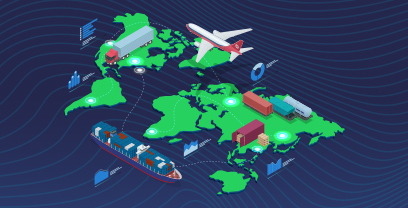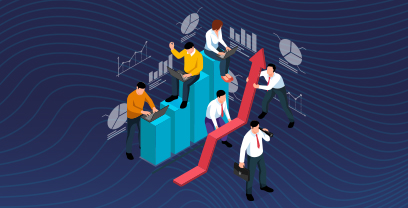As emerging technologies like AI continue to disrupt the way we work, collaborate, and lead, there is still one category of skills that can’t be outsourced or automated: soft skills.
In a recent episode of the #LoveProcurement podcast, host Kelly Barner spoke with Carmen Carulli, Sales Director and former Country Procurement Director at L’Oreal. Carmen has held several leadership positions around the world in procurement and is the co-founder of an Italian association for women in procurement. Carmen also recently published a book, Leadership dell’essere, or Leadership of Being, that explores the most important soft skills all future leaders will need.
A Holistic Approach to Soft Skills
Carmen’s passion for leadership and developing strong relationships is clear whether she’s in procurement or sales.“I love the variety of categories and strategies linked to each category – I don’t like being bored and I was never bored with procurement,” she said. This drive led her to explore the soft skills that are critical for today’s leaders.
In her book, Carmen takes a comprehensive approach to leadership development by examining the importance of soft skills in five areas: physical, mental, emotional, relationships, and spiritual. She uses this framework to underscore how soft skills and leadership qualities cross all areas of someone’s personal and professional life, including how they change over time in response to circumstances, stage of life, goals, and challenges.
Among the most critical soft skills Carmen values are resilience and gratitude, which she says, are not static skills but evolve based on our surroundings. It is important for leaders to understand the importance of continuous evolution and self-improvement.
Soft Skills Versus Technology
As businesses double and triple-down on the investments they are making in digitizing their operations and workflows, expectations of leaders are also undergoing a transformation. As Carmen points out, even though new technologies like generative AI have helped eliminate repetitive tasks and are certainly reshaping business processes, good leaders are still defined by the soft skills they exhibit through their experiences, choices, values, dedication, and creativity – the human traits that don’t fit into any algorithm.
“It’s important to remember that there is not one rule that defines us as a leader, and in the end, what’s important is our creativity and our values,” says Carmen. She encourages leaders to embrace their own unique journeys and leverage their individual strengths and talents when guiding their teams.
In this “era of knowledge,” as Carmen calls it, where we have an endless supply of information available at all times, leaders should focus on continuous learning and growth as a pathway to building the soft skills needed to meet the challenges facing the business and their teams. “Increasing our skills by improving ourselves represents a great competitive advantage,” she said.
The Art of Improvisation
One of the most valuable soft skills, says Carmen, is the ‘art of improvisation,’ or having the ability to think on one’s feet – especially in the absence of clear direction or concrete solutions. “When you don’t have much time or information, you need to stick to the point to achieve results,” explained Carmen.
Being able to effectively improvise in the face of challenges or uncertainty goes hand in hand with the ability to step out of one’s comfort zone and face risk head on, which Carmen believes is a valuable way to strengthen your leadership skills and build self-confidence. In a global business landscape where conditions seem to change all the time, adaptability and quick thinking are invaluable.
Paying It Forward
Carmen has a long track record of mentorship and has dedicated much of her time and attention to developing other professionals, particularly women, in business and in procurement. Her approach to mentorship is deeply personal. As she says, “A good mentor is a real, authentic person who cares about those in front of them.”
The best mentors leverage soft skills like giving support and encouragement, communication, transparency and openness, and courage, which helps their mentees find their strengths, face new challenges, and develop their own “courage to dare to become the best version of themselves,” said Carmen.
Perhaps the best thing about the mentor-mentee relationship is that it is reciprocal. Over time, a mentor learns how to put other people first, a valuable skill set in its own right. “As a mentor,” said Carmen, “I always continue to invest in my own soft skills.”
Advice for Future Leaders
Carmen reminds us that while there is much focus on digitizing, automating, and outsourcing our workflows and communications to technology, the essence of leadership remains deeply human. She offered 3 points of advice and insight to help emerging leaders develop the soft skills needed to navigate an increasingly complex future:
- Continue to invest in yourself and make continuous learning a priority by always seeking out new knowledge.
- Choose your network wisely; surround yourself with people who will have a positive and profound impact on your growth.
- Embrace meaningful experiences and continue to aspire, dream, and imagine the impossible, all of which will help you to stay motivated and passionate.
Investing in these timeless soft skills gives leaders a strong foundation upon which they can build even stronger, more effective teams.




